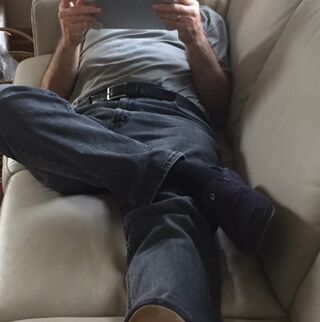Aging
Can You Retire and Not Let Go of Work You Love?
A Personal Perspective: Planning retirement is complicated.
Posted October 12, 2021 Reviewed by Vanessa Lancaster

Here's the truth: some are better at retirement than others.
Take my husband, for instance. He's a total pro. He didn't take phased retirement like most of his colleagues at the university. He went cold turkey. 100%. Didn't look back.
Once retired, he played the violin again, something he hadn't done regularly since college. He started taking lessons, and he practiced every day.
Next, he decided to learn about art, so he enrolled in art history classes. By the end of last semester, he had exhausted every art history course offered at the university.
He's a five-year retirement veteran and offers to go to lunch with any and everyone who is contemplating retiring. He tells friends that he likes being retired, and he has no regrets but understands that it's not for everyone.
I'm happy for him. He bakes bread every week for us and cakes for friends and family for all occasions. He would bake a cake for me if I ever announced my retirement.
My retirement. I'm trying to come to grips with the idea, but I'm not any good at it.
When my husband retired, I gave it a try. I approached my potential retirement like a soft opening for a new restaurant.
I've been a freelance writer for more than 50 years, so there's no paperwork or boss. Deciding to retire doesn't carry as much fanfare as it might for someone who has had, as my mother used to remind me, "a real job."
It's complicated.
My first phase of retirement seemed simple enough. I have an office downtown, and I'm a long-standing 9-5/M-F kind of writer for the most part. It's my job. I also teach, lecture, and write a wide variety of things, including this column.
In what I thought was a bold move, I gave myself permission to attend a deep water exercise class at the local pool M/W/F from 8:30-9:30, which gets me into the office all showered and ready to go for the day by 10:00 a.m. rather than my usual 9:00.
Not bad, for a first try at retirement. Except, the day wasn't long enough, so I wound up having to shift my regular 9-5 workload to 10-6.
So much for phased retirement.
Today, however, marks the beginning of my boldest move yet. I'm adding a Tues/Thurs shallow water pilates class that runs from 10-11, which will get me showered, changed, and into the office a little before 11:30.
Here's the new plan: get up at my usual time (old habits are hard to break), eat a leisurely breakfast, read the newspaper (we still get an actual copy of the New York Times delivered to our front door every morning…I like paper), get a jump on the day by answering a few emails from home, suit up for the pool, exercise, then go to the office.
Why take another water aerobics class?
Simple, I don't have a pocket in my swimsuit for my cell phone. When I'm in the water, I'm officially out of the office and can't be reached, and I can't work.
Retiring is going to require unplugging on a very basic level. Work is addictive. I need to do this one step at a time.
As my next birthday rolls around, I am actively exploring other phased-retirement options: taking lunch every day away from the office, leaving the office before five at least one day a week. The really big deal is for me to quit working on federal holidays.
Not working on federal holidays, is a tough one for me. I relish the quiet days downtown when everyone else is gone. I get a lot of writing done on Federal holidays.
I'm old enough to retire. But, the emotional truth is that I like writing. I like being a writer and thinking like a writer, and I am unsure what my life would be like if I quit being a writer. And did, what?
There's only so much time you can spend treading water before you need to get out of the pool and do something else, like take a shower and get to work.
I'm trying.




